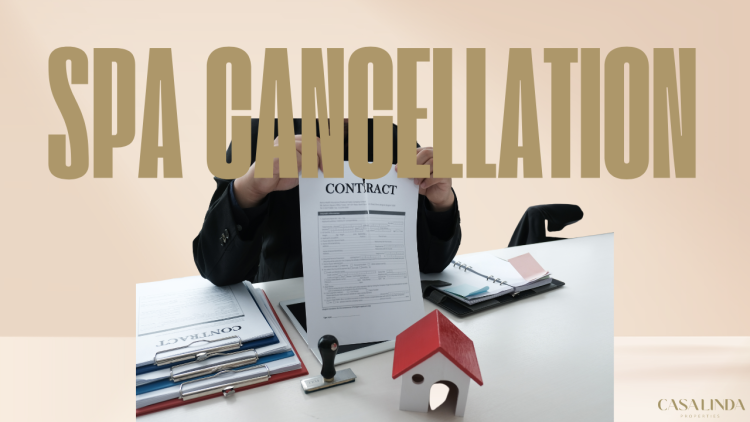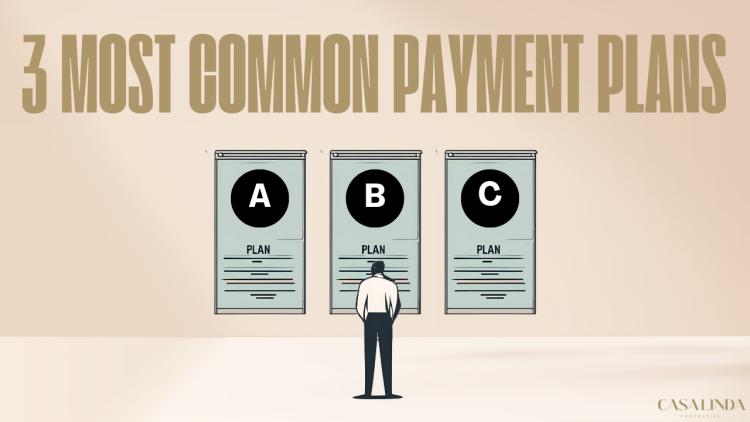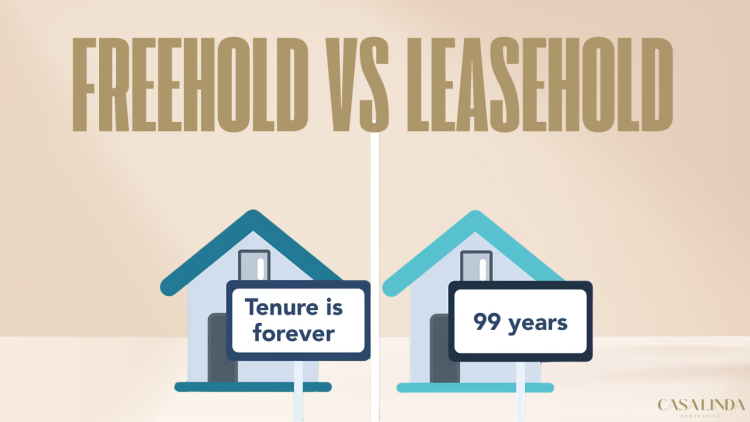Comprehensive Guide to the Sales and Purchase Agreement (SPA) in Dubai Real Estate
Content:

Comprehensive Guide to the Sales and Purchase Agreement (SPA) in Dubai Real Estate
Dubai’s real estate market is one of the most dynamic and sought-after in the world, attracting investors and buyers from all over the globe. Whether you are purchasing a residential property for personal use or making an investment in commercial real estate, the Sales and Purchase Agreement (SPA) is the most critical document in any transaction.
For buyers, understanding the SPA is essential. It ensures that the developer is held accountable for delivering the property as promised while protecting the buyer’s rights in case of disputes, delays, or other issues that may arise during the construction process. Whether you’re a first-time buyer or a seasoned investor, a thorough understanding of the SPA will help you avoid common mistakes, safeguard against fraud, and ensure a smooth transaction.
In this guide, we will explore a comprehensive guide to the SPA, the importance of SPA in Dubai real estate, key elements of SPA, common mistakes and fraud how to avoid, and the key cancellation terms that buyers need to be aware of. By the end, you will know you need to make informed decisions and protect your investment.
What is a Sales and Purchase Agreement (SPA)
The SPA is a legally binding contract that lays down the terms and conditions under which the buyer agrees to purchase, and the seller agrees to sell a specific property. SPA document is enforceable by law and protects the rights of both parties involved in the transaction.
It covers all critical information such as the description of the property, the purchase price, payment schedules, completion dates, conditions precedent (things that must be done before the deal closes), warranties, and more. In Dubai, the SPA often involves off-plan property transactions (under-construction or to-be-built properties), which makes the need for careful due diligence even more vital.
Key Note:
Always ensure that every detail, agreement, or promise is written in the SPA, as verbal promises or agreements may not hold legal weight in the event of a dispute.
Importance of the SPA in Dubai Real Estate
The SPA serves as the backbone of the property transaction. It ensures transparency, security, and compliance with local laws. Dubai is regulated by a robust legal framework under the supervision of the Dubai Land Department (DLD) and the Real Estate Regulatory Authority (RERA), which aim to protect the interests of all parties involved in the property transaction.
In Dubai, the SPA plays an especially important role in off-plan purchases where buyers purchase properties that are yet to be completed. This creates potential risks if the contract isn’t carefully scrutinized. Buyers must fully understand the terms, including what happens in case of delays, defaults, or changes to the development.
- Protects the Buyer’s Investment
One of the most significant risks with off-plan properties is that the project is still under development. The SPA is crucial because it offers legal protection, ensuring that the developer must deliver the property as promised. From the property’s layout to its handover date, the SPA guarantees that the buyer’s investment is secure, even when the property isn’t yet completed.
- Defines Clear Obligations
The SPA ensures that both the buyer and the developer have clear obligations. For the buyer, this typically involves adhering to the payment schedule as construction milestones are reached. For the developer, the SPA requires timely completion of the project, and it sets penalties for delays or failure to meet the agreed specifications.
- Establishes Legal Recourse
If issues arise, such as construction delays, design changes, or disputes over the final product, the SPA provides legal grounds for the buyer to seek recourse. Whether through compensation or cancellation clauses, the SPA ensures that buyers have options if the developer fails to meet their obligations.
Key Note:
Without a robust SPA, buyers are left vulnerable to delays, miscommunications, and even fraud. It’s a document that serves as the cornerstone of trust and clarity between the buyer and developer, providing essential legal safeguards.
Key Note:
Buyers should always insist on getting a legally vetted SPA that follows DLD and RERA requirements to ensure maximum protection in case of disputes.
Elements of a Sales and Purchase Agreement (SPA)
The SPA encompasses various sections that dictate the terms of the agreement. These components must be carefully reviewed to ensure the buyer fully understands the obligations and protections in place.
- Identification of Parties
This section identifies the buyer and the seller, including their full legal names, contact information, and relevant identification numbers (e.g., Emirates ID for residents, and passport number for international buyers).
- Property Description and Specifications
The SPA must clearly define the property’s details, including its size, layout, location, specifications, and any unique features or amenities. In off-plan transactions, this section ensures that the buyer knows exactly what is being purchased, even though the property is still under construction.
- Purchase Price and Payment Terms
The SPA specifies the total purchase price of the property, along with a clear schedule for any installments or staggered payments. This section should also highlight the initial deposit and the final settlement.
- Completion and Handover Date
This section specifies when the property will be handed over to the buyer and the final transfer of ownership will occur. For off-plan properties, this date may be contingent upon the project’s completion, which should be indicated.
- Warranties and Representations
This ensures that the seller provides guarantees about the condition of the property, including that it is free from legal encumbrances, debts, or third-party claims.
- Penalties for Breach
Clear penalties must be outlined for either party in case of default or breach of contract. This could include penalties for late payments, failure to complete the deal, or defects in the property that are discovered after handover.
Key Note:
Make sure to understand all financial obligations, especially hidden costs, such as service charges or administrative fees, that might be included in the SPA.
Common Mistakes to Avoid, and How to Avoid Fraud in Off-Plan

Transactions
Off-plan property purchases can be enticing, but they come with inherent risks. Many buyers fall into traps that could be avoided with better understanding and vigilance.
Here are some key mistakes to avoid, along with tips on how to protect yourself from fraud:
- Not Researching the Developer’s Reputation
One of the biggest mistakes is jumping into a purchase without checking the developer’s track record. A developer with a history of delayed projects or customer complaints can be a red flag.
Fraud Prevention Tip:
Always investigate the developer’s past projects and their completion history. opt for developers with strong reputations and a proven ability to deliver on time.
- Failing to Understand the Payment Schedule
Many buyers overlook the importance of the payment schedule. Tying payments to construction milestones is essential to ensure you don’t pay ahead of the project’s progress.
Fraud Prevention Tip:
Verify that your payment obligations are linked to actual progress on the project, rather than arbitrary dates.
- Not Putting Verbal Promises in Writing
Verbal agreements and promises made by developers or sales agents are not legally binding unless they are included in the SPA.
Fraud Prevention Tip:
Always insist that all promises be written into the SPA, including completion dates and property features.
- Engaging with Unlicensed Brokers
Some buyers fall victim to fraudsters posing as brokers who are not licensed to sell properties.
Fraud Prevention Tip:
- Always verify that the broker you’re working with is licensed, and ensure that the property listing is legitimate.
- Working with a professional brokerage company like Casalinda can ensure you a smooth and secure buying experience, free from mistakes and scams.
SPA Cancellation Terms: What You Need to Know

In an off-plan property transaction, while both the buyer and developer generally aim to see the project through to completion, there may be situations where the Sales and Purchase Agreement (SPA) needs to be terminated. Knowing the cancellation terms outlined in the SPA is crucial, as it governs what happens when either party decides to back out of the agreement. This section explores the various scenarios that can lead to cancellation, as well as the potential financial and legal consequences for both parties.
- Buyer-Initiated Cancellation
In some instances, the buyer may wish to cancel the SPA due to delays, dissatisfaction with the project, or personal reasons. However, the grounds for cancellation and any associated penalties are strictly governed by the terms outlined in the SPA.
- Delays in Project Completion: If the developer significantly delays the project or fails to meet certain construction milestones, the buyer may have the right to cancel the agreement. The SPA typically specifies a grace period for delays, after which the buyer can terminate the contract and seek a refund. However, it is important to closely examine the force majeure clause, which could provide the developer with an extension in the case of unforeseen circumstances beyond their control.
- Breach of Contract: If the developer fails to meet their contractual obligations—such as delivering the property in accordance with the agreed specifications or making unauthorized changes to the design—the buyer may be entitled to cancel the contract. In such cases, the buyer may also be entitled to compensation or a full refund of their payments.
- Personal Reasons: If the buyer decides to cancel the SPA for personal reasons, such as a change in financial circumstances, they may face penalties. Depending on the terms of the contract, the developer may retain a portion of the payments made up to that point. The SPA often includes a clause that outlines the percentage of the total price that will be withheld in the event of a voluntary cancellation.
- Developer-Initiated Cancellation
Developers also have the right to cancel the SPA under specific circumstances, often linked to the buyer's failure to meet their obligations under the contract. In such cases, the developer typically has the legal right to retain a portion of the buyer's payments as compensation.
- Non-Payment by the Buyer: The most common reason for a developer to cancel the SPA is the buyer's failure to make scheduled payments. If a buyer defaults on their payments, the developer can issue a notice of default, giving the buyer a grace period to rectify the situation. If the buyer fails to make the payment within this period, the developer may cancel the contract and retain a portion of the buyer’s payments as compensation for the breach.
- Breach of Other Contractual Obligations: In addition to non-payment, the SPA may specify other obligations the buyer must meet, such as providing certain documentation or adhering to timelines for various processes. If the buyer fails to fulfil these obligations, the developer may be entitled to cancel the contract and retain some payments as per the terms of the agreement.
- Refund Policies and Compensation
Refunds in the case of SPA cancellations are generally determined by the circumstances leading to the termination. In buyer-initiated cancellations due to the developer’s breach, the buyer may be entitled to a full refund or partial compensation, depending on the severity of the breach. Conversely, if the buyer cancels the contract for personal reasons or defaults on payments, they may forfeit part of their investment.
- Partial Refunds: In cases where the buyer cancels the agreement voluntarily or fails to meet payment obligations, the SPA usually outlines a specific refund policy. This may involve the forfeiture of a percentage of the total payments made, as compensation to the developer for the time and resources spent on the project up to that point.
- Full Refunds: If the developer is found to be at fault—such as failing to deliver the property on time, breaching the contract, or not following through on promised specifications—the buyer may be entitled to a full refund of all payments made. In such cases, the SPA should specify the process for obtaining the refund and any applicable timelines.
Key Considerations for Buyers:
- Always review the cancellation clauses in detail before signing the SPA, ensuring you understand the consequences of both voluntary and involuntary cancellations.
- In the event of delays, check whether the SPA provides clear remedies, including refunds or compensation.
- Consult with a legal expert to clarify your rights and ensure that the cancellation terms are fair and in line with Dubai’s property laws.
Real-Life Scenario: Navigating the SPA for a Successful Off-Plan Purchase
When Maria decided to invest in an off-plan property in Dubai, she was excited but cautious. She knew the importance of thoroughly understanding the Sales and Purchase Agreement (SPA) before signing. After selecting a promising development, Maria carefully reviewed the SPA with the help of a real estate consultant.
The SPA outlined every detail: from the property’s exact specifications to the payment schedule tied to construction milestones. It included clauses addressing potential design changes and outlined clear penalties if the project was delayed.
Halfway through the construction, the developer faced unexpected delays due to supply chain issues. Thanks to the well-defined penalty clauses in the SPA, Maria was compensated for the delay, which helped reduce the inconvenience and additional costs she faced.
Maria’s careful approach to understanding and negotiating the SPA ensured that her investment was protected and that she received what was promised. Her experience highlights the importance of a well-drafted SPA in safeguarding your interests in an off-plan property purchase.
Safeguarding Your Off-Plan Property Purchase
In the dynamic real estate market of Dubai, purchasing an off-plan property can offer significant advantages—if handled correctly. The Sales and Purchase Agreement (SPA) is your strongest protection against potential issues that may arise during the construction process. It legally binds the developer to deliver the property as agreed while offering you recourse in the event of delays, changes, or disputes.
By understanding the key elements of the SPA, avoiding common mistakes, and staying vigilant against fraud, you can safeguard your investment and navigate the process with confidence. Always consult legal and real estate professionals before signing the SPA, and ensure that every promise is written into the contract. In doing so, you’ll set the foundation for a successful and secure off-plan property purchase in Dubai.



